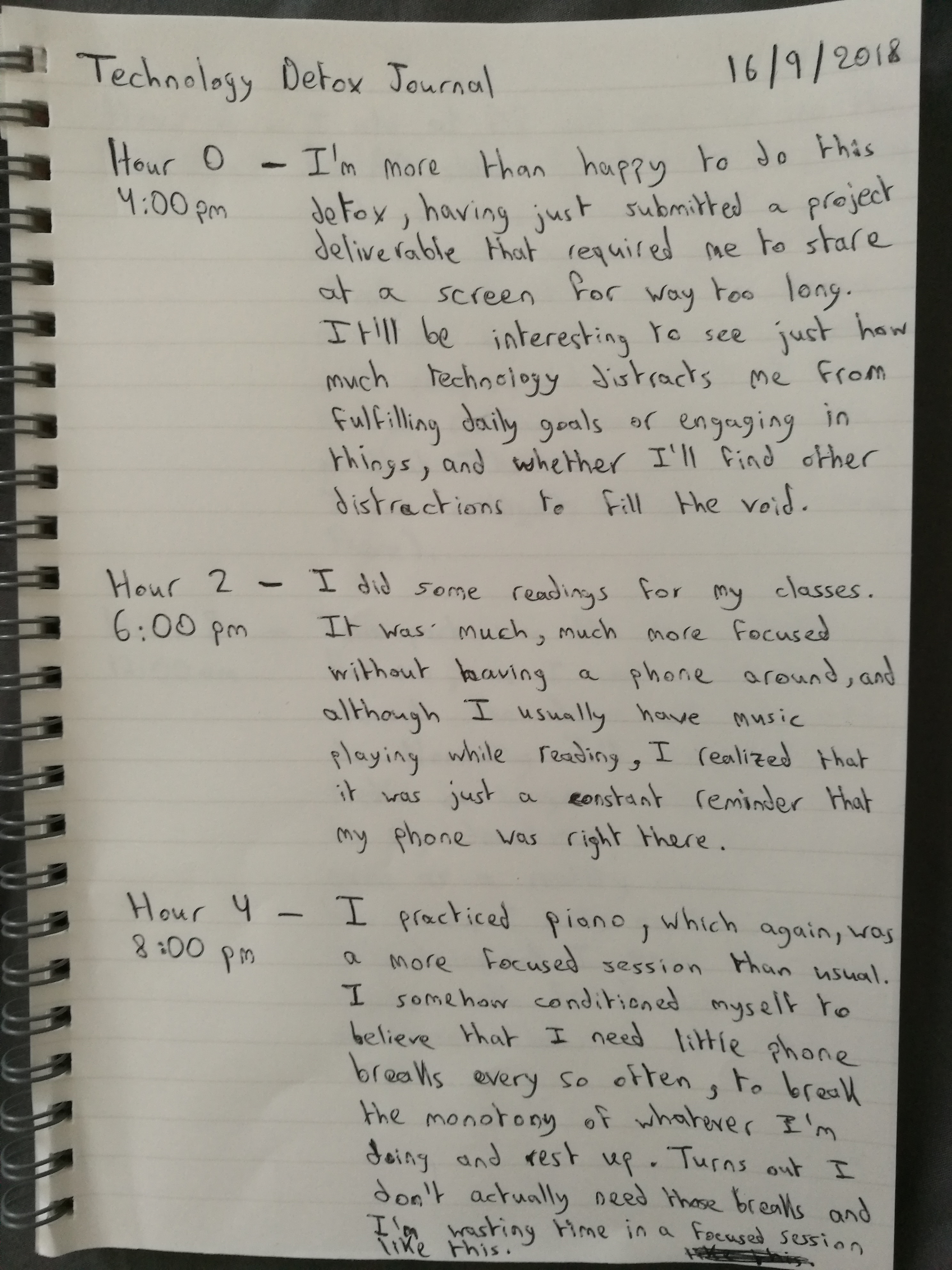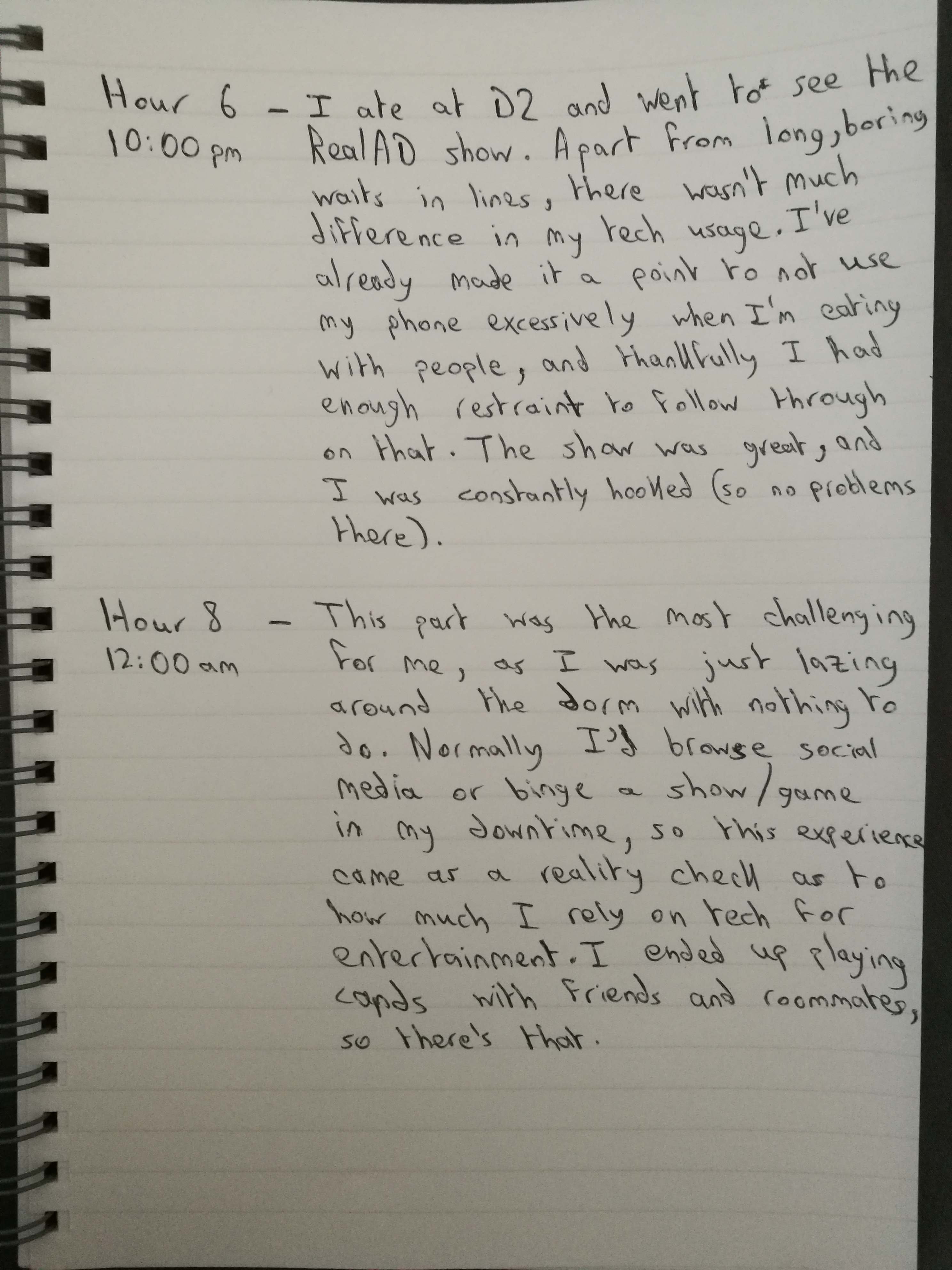Both E.M. Forster’s “The Machine Stops” and Sherry Turkle’s “Reclaiming Conversations” set out to admonish the consequences of our reliance on technology, albeit with vastly different approaches. Forster takes the fictional approach, attempting to reflect society’s obsession with technology, at times to the point of worship. Turkle’s approach is rooted in our daily experiences with phones, which have taken the role of our personal companions and stripped away much of our emotion and empathy. Both readings, coupled with my 8-hour-technology detox, have made me rethink the way I use technology.
Although the issues Turkle brings up are widespread, I do not find myself affected by many of them. I have went through a phase of using a phone in the middle of a conversation or while eating with friends, but quickly became aware of the implications of doing so. I found that face-to-face conversations will always be more meaningful than other means of communication, and that one should take precedence over the other. At the same time, there are people in my life that I almost only text, because as Turkle mentions, it is much easier to maintain relationships comfortably that way.
Other than the fact that I have no idea how to make plans with people without texting, the main lessons that I got from the detox exercise were not social at all, but rather personal. I find that I can focus more, make use of my time better, and fully engage in activities without a phone. For the first time in a while, I remembered what it was like to be bored without having an instant gratification device to save me, and as Turkle mentions, being bored is not entirely a bad thing. Like technology, it can be great in doses.
I find that the availability of technology that makes us less empathetic eventually allows us to be aware of the things that we had taken for granted before that technology’s advent. Forster’s fictional characters are aware of certain things before their world became inhospitable, but choose to shun them as they did not experience them, satisfied by the luxuries provided by The Machine. This contrasts our generation, which had grown up with the explosion of the Internet and smartphones, and is therefore aware of what things were like before, or otherwise, as Turkle heartily suggests, we can hear about it from the older generations. This awareness can help us compare and draw valid conclusions about the advantages and disadvantages of the newest tech. Turkle’s suggestion that the older generations need to step in and engage in meaningful conversations with their children is vital, because as dramatic as it may seem, the world that Forster has created is rooted in at least some reality, where people are completely ignorant of the upsides of a pre-technological age and choose to embrace familiarity.

